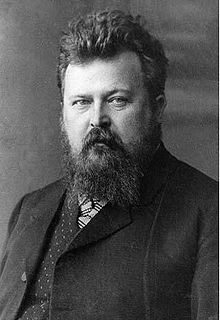Hans Kehr

Johannes Otto Kehr (April 27, 1862 – May 20, 1916) was a German surgeon and professor of surgery born in Waltershausen, Saxe-Coburg and Gotha.
He practiced surgery at a private clinic in Halberstädt, and from 1910 worked in Berlin. He is known for the development of operative procedures for the treatment of gall bladder and bile duct diseases.
In the late 19th century, Kehr popularized the cholecystectomy for the treatment of gallstones. He is credited with performing 2600 operations of the biliary tract during his career.[1]
Eponyms
His name is lent to Kehr's sign, which is in an indication of acute pain in the left shoulder associated with a ruptured spleen. Also, he popularized a device for biliary drainage that today is known as "Kehr's T-tube".
Selected publications
- Die chirurgische Behandlung der Gallensteinkrankheit, 1896
- Die in meiner Klinik geübte Technik der Gallensteinoperationen, 1905
- Die Praxis der Gallenwege-Chirurgie in Wort und Bild, 2 volumes- 1913: (life works of Kehr)
- Chirurgie der Gallenwege, 1913
References
- Parts of this article are based on a translation of the equivalent article from the German Wikipedia.
- Journal of Surgery Coledocolitiasis: Evolution of the diagnosis and treatment
